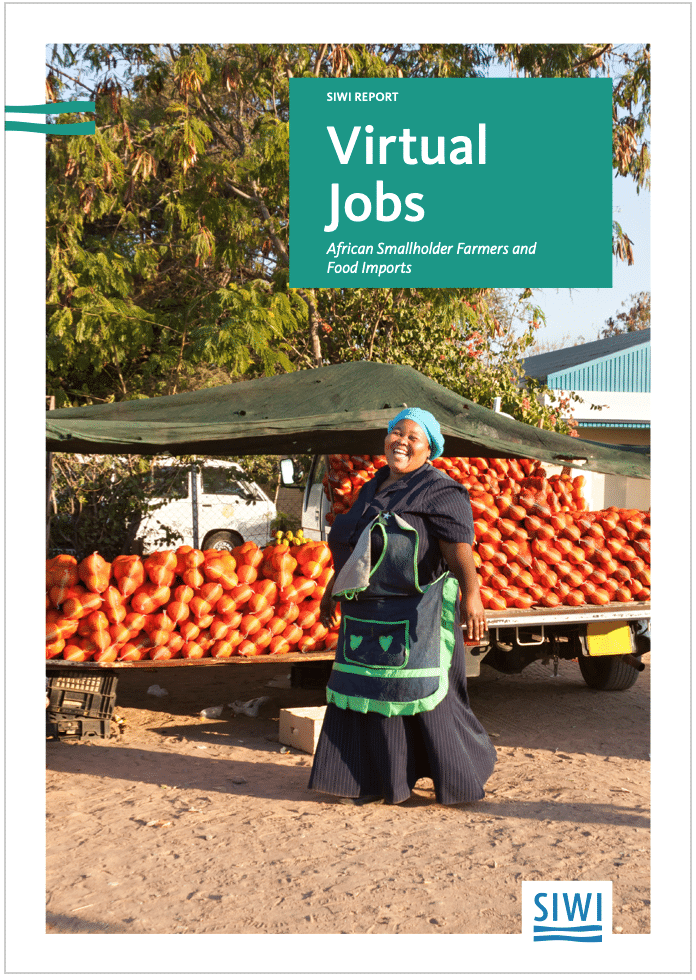Rev Len Abrams, May 2019
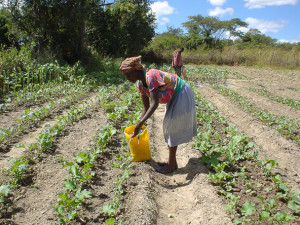
I was ordained in 2014 as an ‘NSM’ – a Non-Stipendiary Minister – which meant that I was initially self-supporting financially. My current ministry as Priest-in-Charge at Christ Church South Nutfield is a half-stipendiary post. So basically I do 3 days a week of ministry and 3 days of consulting work on development projects mainly in Africa.
Keeping a balance
One big challenge is how to balance time between my calling to the ordained ministry and this very interesting and absorbing work in Africa. I see all of it as serving God, as bringing the saving grace and the common grace of Jesus to the world. He wants all people to come into his Kingdom and he causes the rain to fall on the just and the unjust alike.
Much of my work in development in Africa is working to support people in their struggles for development and achieving fulfilling livelihoods, especially in rural areas. Much of this work necessarily results in the pointing out the vast global inequities which exist in the developing South, compared to the ‘developed’ world. This is reflected in one of my activities, developing a Think Tank to work on policy related to regenerative conservation agriculture in rural Africa to enhance resilience to climate change. Follow this link to see more:
Recent publications
Have a look at two recent pieces of work I wrote on rural poverty, water and agriculture in Africa (click on the images to download pdf documents).
Background to my work and ministry in African development
Early background in South Africa
So what do I do with my time? I am qualified as a professional Civil Engineer for which I hold a Master’s Degree. I specialise in water engineering in developing countries in Africa. In the early part of my career I worked mainly in rural villages in South Africa during the apartheid era which was inevitably heavily political. I ran an NGO (Non-Government Organisation) which was a non-profit company, and we lived in the villages we worked in. We helped villages provide safe water supplies and sanitation services for themselves. After the democratic elections in South Africa in 1994 I worked for a while as Special Advisor to the new ANC Minister of Water Affairs which was a very exciting time when we reformed much of the country’s water legislation. I had the privilege of sitting in on a couple of Cabinet Meetings chaired by President Nelson Mandela.
Branching out into Africa
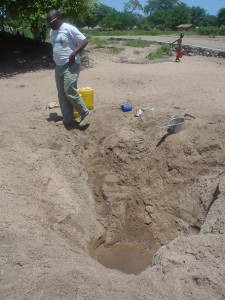
I then began to work further afield in Africa as a consultant to various United Nations agencies and for the World Bank. I spent a lot of time travelling (averaging 180 – 200 days a year for many years) and have worked in 26 African countries in all. Most of this work was related to supporting governments with legislative and policy reforms aimed at making water more accessible for households, industry and development generally whilst ensuring environmental protection. Karen and I, together with our extended family, moved to Caterham from South Africa at the beginning of 2000 and I continued working in African water.
I began to specialise in supporting development in international river basins. Due largely to the colonial era in Africa, all large river basins are shared by two or more countries; some, such as the Nile River, are shared by up to ten countries. Rivers and their tributaries which run through multiple countries make development very complex – Who owns the water? Can an upstream country build a dam which will impact downstream neighbours? How do you manage demands to use water for different purposes – for irrigation or generating electricity or to service the needs of cities and factories? This becomes very technically and politically complex.
Joining the World Bank
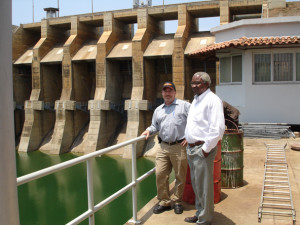
In 2003 I joined the World Bank in Washington DC, initially for two years which ended up 6 ½ years – we kept our home in Caterham but lived in the US for six years. I was in the Africa Region of the World Bank responsible for Southern Africa water resource developments. I worked with governments to package finance for technical support and to finance water infrastructure investments such as the building of dams, flood control, drought management etc. In 2009 we returned to England to help support Karen’s ageing parents and I took early retirement from the World Bank but continued to work as a consultant and advisor to DFID, the World Bank and other clients in the field of African water development.
Three project examples
One way to explain what I do is to describe the three projects I am currently working on [Mid 2015]. These jobs mean that I need to travel fairly frequently to Africa, on average about a week a month.
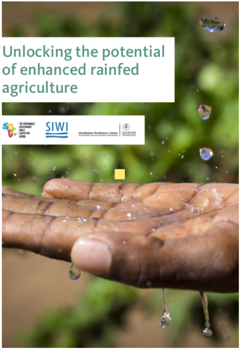
“Green Water” to support Rural Small-holder farmers and rural economies in Africa. Client: The Stockholm International Water Institute (SIWI). I am an Adviser contracted by SIWI. The project advocates support for the 60% of the population in Africa which persistently remains in poverty, unable to provide for itself through subsistence agriculture. Why is this large population group effectively not considered part of the economy of their countries; why is virtually nothing invested in infrastructure which would enable them to fend for themselves; why are vast sums of money spent instead every year in emergency feeding imported from outside Africa (estimated at between $36 – $41 billion/year for sub-Saharan Africa)? This is an ongoing project aimed at analysing the economics and politics of Sub-Saharan Africa and producing advocacy materials and a cadre of Champions who will challenge the prevailing situation and bring about policy reform and a redirection of public funds.
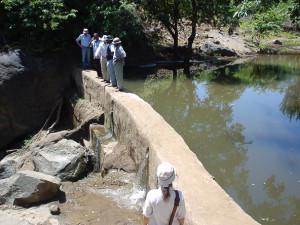
Framework for Political Economy Analysis in International River Basin Development in Africa. Client: World Bank. I am Project Team Leader contracted through the Stockholm International Water Institute to develop a framework for undertaking political economy analysis in the complex situation of shared international river basins. With all development and in fact all human interaction there is always a very complex array of personal and corporate drivers and incentives which cause people to behave they way they do and make the decisions which influence how development is done. Some of these are out of personal gain and corruption, some are motivated by power and others by notions such as sovereignty. It is important to know how this will affect development projects and investments in infrastructure but up until now there has not been a systematic methodology for analysing these complex situations. I, with my team of consultants from around the world, have developed a framework and have applied it in three case studies in Africa: 1- The Lake Chad Basin in central Africa; 2- The Niger River Basin; and 3- The Equatorial Lakes Region in East Africa. I will be presenting the outcomes of the project to the World Bank and its funding partners at a conference at the Victoria Falls in Zambia at the end of September this year.
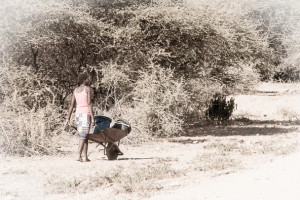
Multi Sector Investment Opportunity Analysis of the Okavango River Basin. Client: World Bank. I am a Specialist Advisor contracted by a London firm it provide strategic support to the project. The Okavango River is shared by three countries – Angola, Namibia and Botswana. The river is special because it does not flow into the sea but into an inland delta – the Okavango Delta which is a World Heritage site with vast natural resources and wildlife. The three countries need to develop and meet the needs of a growing population. Until recently, because of years of civil war, Angola has not made many demands on the river but this is changing. The World Bank is looking at how water can be developed to support the national economies of the three countries without threatening the very fine natural balances in the delta. The project is looking at various alternatives including the possibility of water transfers from other rivers in the region which requires complex hydrological and economic modelling. Very interesting.

